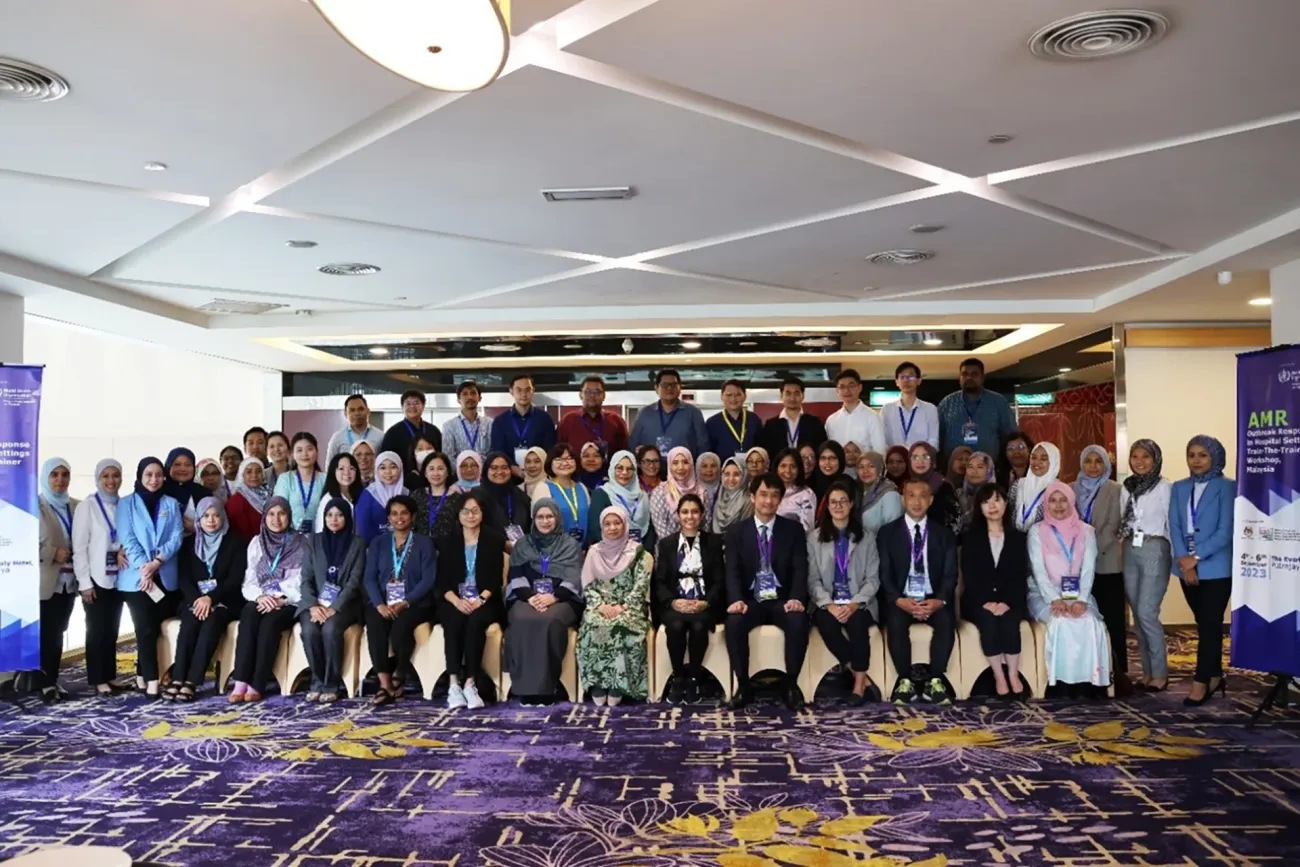WHO supports the strengthening of Malaysia’s antimicrobial resistance surveillance and laboratory capacities in hospital settings

AMR remains a global public health threat with evidence showing that global deaths associated with AMR, directly caused 1.37 million deaths.
Antimicrobial resistance (AMR) poses a growing risk to our ability to effectively prevent and treat a widening spectrum of infections triggered by bacteria, parasites, viruses, and fungi. The emergence and spread of drug-resistant pathogens that have developed new resistance mechanisms which lead to antimicrobial resistance, continue to threaten our ability to treat common infections.
AMR remains a global public health threat with evidence showing that global deaths associated with AMR, directly caused 1.37 million deaths. AMR is one of the four thematic priorities for WHO Western Pacific Region’s vision, For the Future.
Malaysia has made significant progress in addressing the problem of AMR and has developed the implementation of the National Plan for AMR, the Malaysian Action Plan on Antimicrobial Resistance (MyAP-AMR) 2022-2026. Led by the National Antimicrobial Resistance Committee (NARC), the second action plan was developed in collaboration with relevant sectors under the One Health approach.
To further strengthen AMR surveillance, laboratory capacity, and outbreak response, WHO together with WHO Collaborating Center for AMR and experts from Malaysia, conducted a 3-day train-the-trainer workshop in September.
Participants of the workshop included infectious disease physicians, microbiologists and Infection Prevention and Control medical officers and nurses involved in AMR outbreak response in hospital settings from the six regions throughout Malaysia.
The workshop aimed to equip the participants with essential components of outbreak investigation and descriptive epidemiology practices to strengthen capacity for AMR outbreak response in hospital settings and to discuss on incorporation of the workshop into regular capacity-building programmes in Malaysia, such as the Field Epidemiology Training Program.
WHO and the Ministry of Health Malaysia conducted visits to the Institute for Medical Research, Sungai Buloh Hospital, Putrajaya Hospital and Banting Hospital across two days for AMR surveillance and laboratory system assessment.

The objective of this visit was to review the AMR surveillance system and laboratory capacity in Malaysia and alignment with the WHO Western Pacific Region’s AMR surveillance assessment tool.
With strengthened surveillance and laboratory systems, data regarding AMR can serve as a valuable resource for informing decision-making at local and national levels which provide the foundation for effective interventions and advocacy efforts.
Dr Asmayani Khalib, Deputy Director General of Health (Medical), Ministry of Health Malaysia said, “Surveillance is an essential tool to inform policies and infection prevention and control responses. Importantly, it is the cornerstone for assessing the spread of AMR and to inform and monitor the impact of local, national, and global strategies. In Malaysia, multidrug resistant organism (MDRO) surveillance is carried out as part of the initiatives to prevention and early detection of outbreaks, and timely investigation and implementation of control measures within healthcare facilities. This ongoing laboratory surveillance spans the entire year.”
AMR can be tackled with the appropriate tools and resources, enhanced systems, and collective effort which can lead to more effective healthcare, reduced mortality rates, and a healthier, sustainable future for all.
Dr Rabindra Abeyasinghe, WHO Representative to Malaysia, Brunei Darussalam and Singapore said, “Let us come together to forge a path toward a future where AMR is no longer a major public health issue and where the population of Malaysia and other Asia Pacific countries is protected from the harmful impacts of increasing and spreading AMR by acting proactively.”



